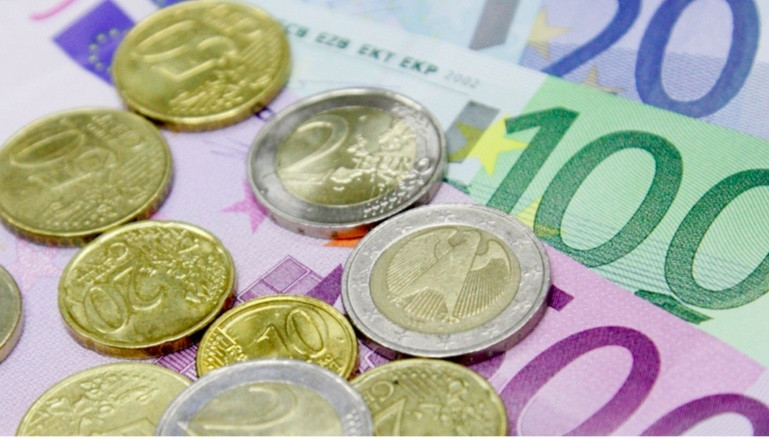Last year, some European leaders proposed seizing frozen Russian assets in Europe to help rebuild Ukraine, but analysts said the move could deal a heavy blow to the euro.

Euro. Photo: Sputnik
As part of their sanctions campaign against Russia, EU governments have frozen more than $200 billion worth of Moscow’s assets, ostensibly to punish Moscow for its military campaign in Ukraine. However, a British newspaper notes that European powers have realized that seizing these funds, or the revenue they generate, may not be a good idea.
According to media reports, the European Central Bank and some EU finance ministers are concerned that the move could undermine the credibility of the euro and European government bonds in the eyes of other central banks.
They argue that the EU should act in tandem with other members of the Group of Seven (G7) to share the losses, although some analysts point out that the EU has already suffered losses by “freezing” Russian assets.
Under the proposal, entities holding frozen Russian funds would be required to put them into “higher-yielding investments,” then transfer the profits to an EU fund. The proposal has been mooted amid concerns that potential losses on these investments could leave European taxpayers fully liable to the Russian Central Bank.
“The unilateral seizure of Russian assets is a clear violation of international law, which grants states immunity from jurisdiction over other states and prevents them from seizing assets to settle debts,” the British media outlet said.
After the Ukraine conflict escalated in February 2022, the US and its European allies froze the assets of the Russian Central Bank held in US dollars and euros. However, so far, the leaders have not made any official decision on the use of the frozen Russian assets, due to the complexity of the issue.
According to experts, the actions of the US and Europe have dealt a serious blow to the reputation of the US and European economies in the eyes of foreign investors, and have even sparked talks about the need for de-dollarization.
Recently, the Belgium-based clearing house Euroclear revealed that the accumulated interest on frozen Russian assets in the first half of 2023 had reached nearly $2 billion. Specifically, in its financial report for the first 6 months of 2023 published on July 20, Euroclear said that “collecting activities increased significantly”, partly due to “higher interest collection, as well as the increase in international sanctions against Russia”.
Russia has repeatedly criticized Western efforts to transfer its seized assets to Ukraine. Moscow has vowed to respond in kind if necessary, arguing that the seizure and use of frozen assets is “theft” and a violation of international law.
According to Tin Tuc Newspaper